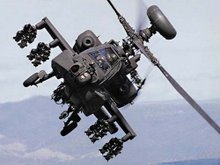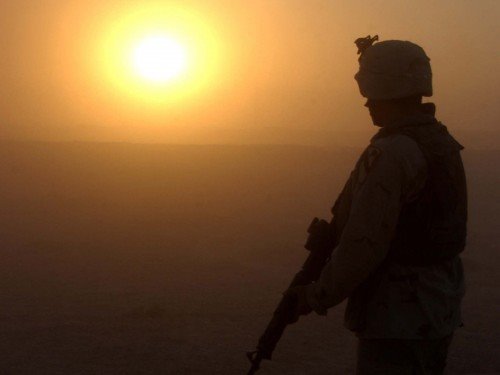Military Defense Lawyer (Former JAG Attorney) News:
Recently, a junior military member defended by attorney Richard V.
Stevens (Military Defense Law Offices of Richard V. Stevens, P.C.) was cleared
of the sexual assault allegations he faced (UCMJ Article 120).
The client and others in his unit were accused of sexually assaulting
a civilian acquaintance they were partying with. The details of the alleged sexual assault
were particularly lurid and aggravating.
As the forensic evidence was collected, however, video clips of the
actual incident surfaced, which told a dramatically different story. The clips show that the accuser was a willing
participant in what occurred. When the
video clips surfaced, the narrative of the alleged “attack” seemed to change
from a forcible event when she was supposedly passed out, to being “too drunk
to consent.”
The accuser watched the video clips and, knowing they contradicted
her claims, said that she didn’t remember what was depicted in the clips at
all. Unfortunately for her “too drunk”
narrative, it was clear from the videos that the accuser was able to walk,
talk, communicate, dance, laugh, interact with the men in the video, and make
faces at the camera as the event occurred.
Later in the clips, the audio contradicted her claims further.
Despite all of this, the client was charged, his case went to an
Article 32 hearing (in which the defense received a favorable analysis), and
the sexual assault allegations were referred to trial by general court-martial
(“felony” level). Ultimately, however, on
the eve of trial, the government agreed to drop the nonconsensual sex
allegations, and the client agreed to plead guilty (in a plea agreement) to
other alleged misconduct on the charge sheet – none of which involved nonconsensual
sex.
When the case was over, the client ended up with a sentence that
was significantly less than the maximum authorized for a special court-martial
(“misdemeanor” level). Despite the plea
that was agreed to, and despite the video evidence that was clearly to the
contrary, the accuser maintained that she did not consent.
This case raises many troubling issues. First, the idea that military sexual assault allegations
are pushed through referral, even when video evidence contradicts them. Second, the idea that military sexual assault
allegations are pushed through referral, even when the Article 32 Preliminary
Hearing Officer (PHO) – who happens to be a Military Trial Judge – provides an
analysis of the case that is favorable to the defense. Third, that an accuser who sees contradictory
video evidence changes the narrative of the event. Fourth, that an accuser takes the far too
common – and legally incorrect – stance that if she did something regrettable
when she was drinking that she may not have done when she was not drinking,
that she is not responsible for her actions and she is a crime victim. This is a common theme in modern military
sexual assault cases, and it is perpetuated by the misguided political pressure
and cultural movements that skew the true meaning of consent. Finally, the luck of obtaining these video
clips, without which the client could have been convicted and sentenced to
decades in prison for a dramatic false story that only unraveled with the videos. The environment is so scary for our military
members these days!
Although the client pled guilty to comparatively minor
allegations, the outcome of this case avoided a sexual assault conviction and
sex offender registration. He will be
able to move on with his life very shortly, without the immense burden of a
sexual assault conviction and life-long impacts. While the defense was successful in this
case, it is important to understand that every case has different facts, and
success in some previous case(s) does not guarantee success in any particular
future case. No military lawyer or
civilian defense lawyer, including those who specialize in military law as we
do, can guarantee the outcome of any military case.
For more information about the military justice system,
particularly cases alleging rape and/or sexual assault in violation of
UCMJ Article 120, type “rape” or “sexual assault” into the search bar above the
blog posts and see http://militaryadvocate.com/military-offenses/rape-sexual-assault-sodomy/.
We offer free consultations for a case you may be involved
in. Just call us.
Thank you.
By: Attorney Richard V. Stevens
Civilian criminal defense lawyer and military defense lawyer
Military Defense Law Offices of Richard V. Stevens, P.C.
http://www.militaryadvocate.com
Civilian criminal defense lawyer and military defense lawyer
Military Defense Law Offices of Richard V. Stevens, P.C.
http://www.militaryadvocate.com
Blog postscript: I (attorney Richard V. Stevens) am a former
active duty military lawyer (JAG). My perspectives and advice, therefore, are
based upon my experience as military defense lawyer and as a civilian criminal
defense lawyer practicing exclusively in the area of military law and military
justice. This blog addresses issues in military law, military justice, military
discipline, military defense, court-martial practice, the Uniform Code of
Military Justice (UCMJ) and other military and/or legal topics. Nothing posted
in this blog should be substituted for legal advice in any particular case. If
you seek legal advice for a particular case, please contact The Law Offices of
Richard V. Stevens for a free consultation. These military defense law offices
are located in the Northern Florida/Georgia areas, but the military defense
representation is worldwide – when necessary, the attorneys travel to wherever
the client is stationed around the world.


























No comments:
Post a Comment